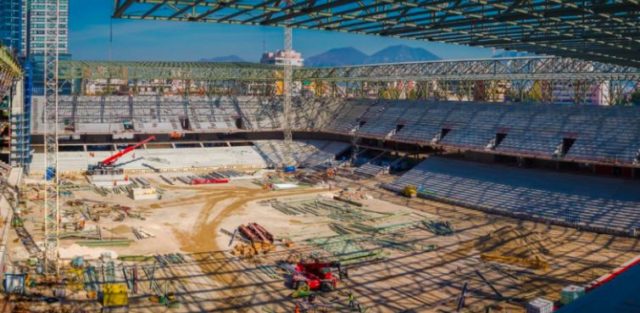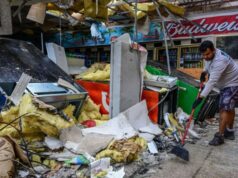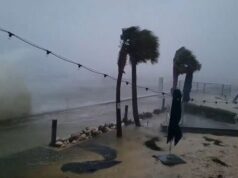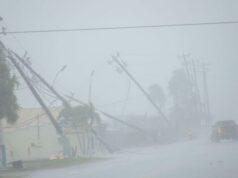Albania’s football association says the completion of the ‘National Arena’ stadium, the new home of Albania’s national side in the Albanian capital city Tirana, has been called into question due to a tax dispute with the Albanian government.
The football governing body says it will undertake legal action against the Albanian government after failing to get back €2 million in value added tax refunds from its part of investment. The new stadium is a €50 million public private partnership project under which an Albanian-owned company was offered public land to build commercial facilities in return for building a new modern stadium.
With construction works already in their final stage following the mid-2016 demolition of the old “Qemal Stafa” stadium, the football association says the tax appeals body of the finance ministry has turned down a complaint over €2 million in VAT refunds from the association’s UEFA-supported €10 million investment in the stadium.
The association says the Tax Appeals body is behaving like ‘ultra fans,’ hinting of politically motivated reasons following the re-election of incumbent president Armand Duka for a fifth consecutive term at the helm of the country’s most important sports organization in early 2018 and the failure of his main Bashkim Fino, a former Prime Minister and current ruling Socialist Party, to beat him.
What the football association can do now, is address the country’s three-tier administrative court system to get back €2 million which it says compromises the completion of the new stadium, initially scheduled to become operational by early 2019.
There has been no reaction by the finance ministry, where the Tax Appeals Directorate operates as legally independent body examining tax disputes before any further appeal with administrative courts.
The Appeals Body [of the Finance Ministry] has refused refunding VAT for the part of investment carried out by the football association at the ‘National Arena’ stadium. That means the investment lacks €2 million and that practically its completion is seriously called into question,” says the football association in a statement.
Representatives of the football association say VAT statements with authorities have been regularly filed by a joint venture with the Albanian government set up in 2014 to oversee the construction of a new stadium in the country.
The majority 75 percent stake at the “Qendra Sportive Kuq e Zi’ (The Red and Black sports center) company is held by the football association whereas the Albanian government holds a minority 25 percent.
“The Football Association will address court over this issue, but it’s unfortunate that a group of government and politics bureaucrats are not happy yet that Albania qualified for the Euro 2016 and are yet more angry that Tirana is going to have a modern stadium,” says the football association.
The Albanian national side claimed a historic first-ever qualification at a major football tournament in 2016, but has been struggling to impress since then, initially failing to qualify for the Russia 2018 World Cup, and is now almost out even from the Nations League, an inaugural competition largely set to replace friendlies, but which provides teams with another chance to qualify for the UEFA Euro 2020 final tournament.
New stadium
The new ‘National Arena’ stadium is a €50 million public private partnership deal with an Albanian construction company that has invested €40 million to build a stadium in return for being offered public land and a permit to build a 24-storey tower next to it that will host commercial facilities, including a hotel.
The Albanian football association which has invested around €10 million in the stadium project through UEFA funds will also get considerable facilities, but not have its headquarters there. The new football association headquarters that will also serve as an accommodation center for the national side are already being built elsewhere in Tirana at a former sports complex.
The new National Arena stadium is a 22,000-seat facility that is being built on the site of former ‘Qemal Stafa’ stadium in Tirana, which ceased being used for international matches in 2013 after failing to meet international standards. Unlike the old stadium, the new facility has no athletics track, a key barrier for some of Albania’s athletes.
Former ‘Qemal Stafa’ stadium served as Albania’s national stadium for over 70 years since 1946 when it was inaugurated for the Balkan Cup as an Italian-designed facility.
Lacking a permanent home, the Albanian national football team has in the past five years played their home matches at the newly reconstructed Elbasan Arena and Shkodra stadiums, both reconstructed through government funding of around €14 million.
The stadium PPP is similar to that of a recent controversial bill that is offering an Albanian company to demolish an Italian-built WWII theater building in downtown Tirana and build a new contemporary architecture theater in return for being offered public land to build business towers next to it. The bill has been turned down by the country’s president over lack of transparency and competition and putting at risk the country’s cultural heritage.
While the stadium and the pending national theatre PPP do not affect public finances because of being private investments, international financial institutions have warned that a series of other government funded PPPs through taxpayer support following initial private investment, most of which given the okay following controversial unsolicited proposals and without thorough cost-benefit analysis, could pose a significant threat to the public debt reduction agenda.
Albania’s public debt is already at around 70 percent of the GDP, a high level for the country’s stage of development, undermining macro-economic stability and much-needed public investment due to high servicing costs.

















